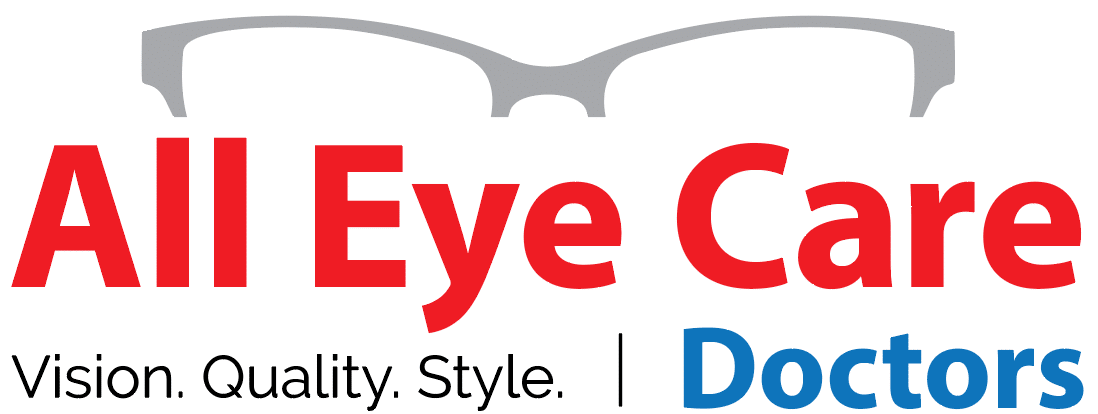Pediatrics in Andalusia: Compassionate Take Care Of Expanding Households
Wiki Article
Is Refractive Surgery Right for You? Aspects to Take Into Consideration for Better Eyecare
In the world of eye treatment, the decision to undergo refractive surgery is a weighty one that demands thoughtful consideration. As people seek clarity and freedom from the restraints of restorative lenses, many aspects enter into play when figuring out the viability of such a treatment. From the complexities of one's ocular health and wellness to the ins and outs of daily behaviors and individual assumptions, each aspect holds relevance in the wider landscape of refractive surgical treatment candidateship. By examining these crucial elements with care and accuracy, a more clear path in the direction of educated decision-making arises.Eye Health Evaluation
When considering refractive surgical treatment, an extensive eye wellness analysis is crucial to analyze the viability of the treatment for every individual. eye center andalusia. This evaluation entails a series of examinations and examinations carried out by an eye treatment professional to identify the total health and wellness of the eyes, the presence of any hidden problems, and the stability of the refractive mistakeThroughout the evaluation, various elements are taken into consideration, such as the client's case history, present eye prescription, corneal thickness, pupil size, and tear movie top quality. These evaluations assist to identify any contraindications to refractive surgical procedure, such as corneal irregularities, cataracts, or neglected eye infections. In addition, the evaluation helps to manage person assumptions regarding the possible results of the surgery based on their unique eye attributes.
Inevitably, the eye health evaluation is crucial in making certain the safety and effectiveness of refractive surgical treatment, as it offers useful insights into the person's eye health and wellness status and assists identify the most appropriate therapy choices for accomplishing ideal aesthetic end results. (cardiologist andalusia)
Way Of Living Analysis
A thorough way of living assessment is indispensable in figuring out the suitability of refractive surgery for an individual's visual adjustment needs. Way of living aspects such as occupation, hobbies, and daily tasks play an important role in the decision-making procedure regarding refractive surgical procedure. For example, individuals with careers that include a high degree of exercise or exposure to environmental elements may have various visual demands contrasted to those with less active desk jobs. Recognizing exactly how a person's way of life may influence their vision post-surgery is essential for handling assumptions and making sure optimum outcomes.Additionally, way of life behaviors such as sporting activities engagement, outside activities, or also skin care regimens can influence the recovery procedure and general success of refractive surgery. By performing a comprehensive way of living assessment, eye treatment professionals can customize their referrals and treatment plans to meet the distinct needs of each person, inevitably leading to boosted aesthetic end results and satisfaction.
Expectation Placement

Establishing practical assumptions involves complete pre-operative conversations between the ophthalmologist and the person. The specialist needs to transparently connect the possible risks, advantages, and limitations of the procedure (andalusia pediatrics). Individuals require to comprehend that while lots of people attain 20/20 vision or far better complying with refractive surgical treatment, this some might still need glasses for sure tasks like reading or driving at evening. Taking care of these expectations helps prevent frustration and discontentment post-surgery, leading to a much more positive total experience for the client.
Threat Analysis

Factors that might boost the danger of complications consist of age, specific medical problems like autoimmune conditions, unsteady vision prescription, slim corneas, and unrealistic individual assumptions. In addition, selecting a knowledgeable and competent surgeon, complying with pre and post-operative treatment instructions diligently, and divulging any type of appropriate medical history can help reduce threats.
To lessen the probability of difficulties, eye doctors conduct detailed pre-operative examinations to determine any kind of contraindications to surgical treatment. They also go over the potential risks and benefits with patients throughout the examination process. By engaging in open interaction and shared decision-making, both the ophthalmologist and the person can interact to determine if refractive surgery is the best option based upon specific danger profiles and preferred outcomes.
Examination Value
Thinking about the vital function of notified decision-making in analyzing risks and prospective problems in refractive surgical procedure, the assessment process holds significant significance in guiding individuals towards optimum outcomes. During the examination, the ophthalmologist assesses the patient's eye health and wellness, refractive errors, and overall suitability for surgical procedure. This first assessment is essential in identifying one of the most suitable treatment for every individual, considering aspects such as corneal thickness, pupil size, and existing eye conditions.Furthermore, the appointment works as an opportunity for patients to review their expectations, issues, and any kind of questions they may have relating to the surgery. Clear communication in between the client and the specialist is vital to ensure realistic expectations and an extensive understanding of the prospective threats and advantages involved.
In addition, the consultation permits the doctor to explain the different surgical choices available, their respective end results, and the post-operative treatment needed. This extensive conversation empowers patients to read review make educated decisions regarding their eye treatment, bring about much better fulfillment and results post-surgery.
Final Thought
In conclusion, people thinking about refractive surgical treatment should undertake an extensive eye health examination, analyze their way of living behaviors, align their expectations with potential results, examine the associated threats, and prioritize appointments with eye care professionals. These variables play an important duty in establishing the viability of refractive surgical procedure for each individual, ensuring ideal results and satisfaction with the treatment.Patients thinking about refractive surgery typically have high assumptions relating to the end results, anticipating excellent vision without the demand for glasses or call lenses. While refractive surgical procedure can substantially boost vision and lower dependency on visual help, it is crucial for individuals to recognize that results may differ based on individual aspects such as the degree of refractive mistake, corneal thickness, and total eye health and wellness.
By engaging in open interaction and shared decision-making, both the individual and the eye doctor can function with each other to identify if refractive surgery is the appropriate option based on specific danger accounts and desired end results.
Taking into consideration the vital role of informed decision-making in assessing risks and possible difficulties in refractive surgical treatment, the examination process holds substantial value in leading people towards optimal end results. Throughout linked here the examination, the ophthalmologist assesses the person's eye health, refractive mistakes, and total viability for surgery.
Report this wiki page